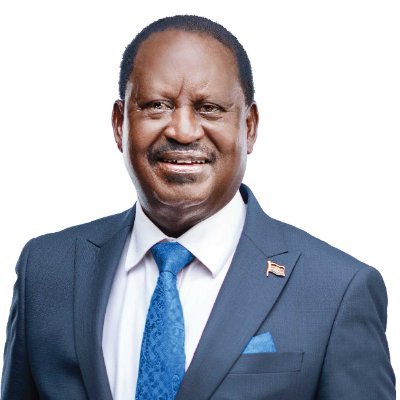By: Nurudeen Nasara Hafsah
Raila Odinga, the charismatic and fiery former Prime Minister of Kenya whose decades-long struggle for democracy and multi-party politics defined a generation and earned him the nickname “Agwambo” (the mysterious one), has died at his home in Karen, Nairobi. He was 80.
Family spokesperson, Dr. Oburu Odinga, confirmed the death in a statement released early Tuesday, saying the veteran politician passed receiving medical treatment. The news sent immediate waves of grief and shock across the nation, prompting an outpouring of tributes from allies and former foes alike, all acknowledging his immense and indelible role in shaping modern Kenya.
The scent of bougainvillea and the distant hum of Nairobi’s morning traffic usually brought the Odinga compound to life. But on this Tuesday, a profound silence had fallen over the home in Karen. Inside, the lion of Kenyan politics had taken his final rest.
Raila Odinga’s journey was, in many ways, the story of Kenya itself. From the crucible of his father’s, Jaramogi Oginga Odinga, political battles, Raila inherited a legacy of defiance. He spent years as a political prisoner, detained without trial by the Moi regime for his pro-democracy activism. The cold, solitary cells of Kamiti Maximum Security Prison could not break his spirit; they only tempered his steel.
His release heralded a new, relentless force. He was a key architect of the multi-party system that ended Kenya’s one-party state. He was the engine behind the “Orange” movement that defeated a proposed constitution in 2005. His presidential bids in 2007 ended in a disputed election that plunged the country into a devastating post-election crisis, the scars of which the nation still bears. Yet, from that very crisis, he emerged as a figure of reconciliation, accepting the newly created role of Prime Minister in a grand coalition government, a testament to his ultimate, if complex, patriotism.
For his supporters, the “Agembe” or “Baba” as they affectionately called him, he was a fearless champion of the “hustler,” the common mwananchi. His rallies were electrifying sermons of hope and change. For his detractors, he was a perennial agitator, a master of political brinkmanship. But none could deny his impact.
In his later years, the firebrand seemed to mellow, speaking more of national unity and his legacy. Just last week, he had been seen tending to his roses, a quiet hobby for a man who had lived a thunderous life.
Now, as the news broke, a crowd began to gather silently at the gates of his home. A young man held up a faded “Obama-style” poster of Raila from the 2013 elections. An old woman, her head covered in a leso, wept openly, whispering, “Baba ametuacha.” Baba has left us.
The nation he fought for, criticized, loved, and helped build now stands without one of its defining pillars. The mysterious one has finally taken his last, great mystery—where a nation’s spirit goes when its fiercest defender is gone. Kenya is in mourning, not just for a man, but for an era.


